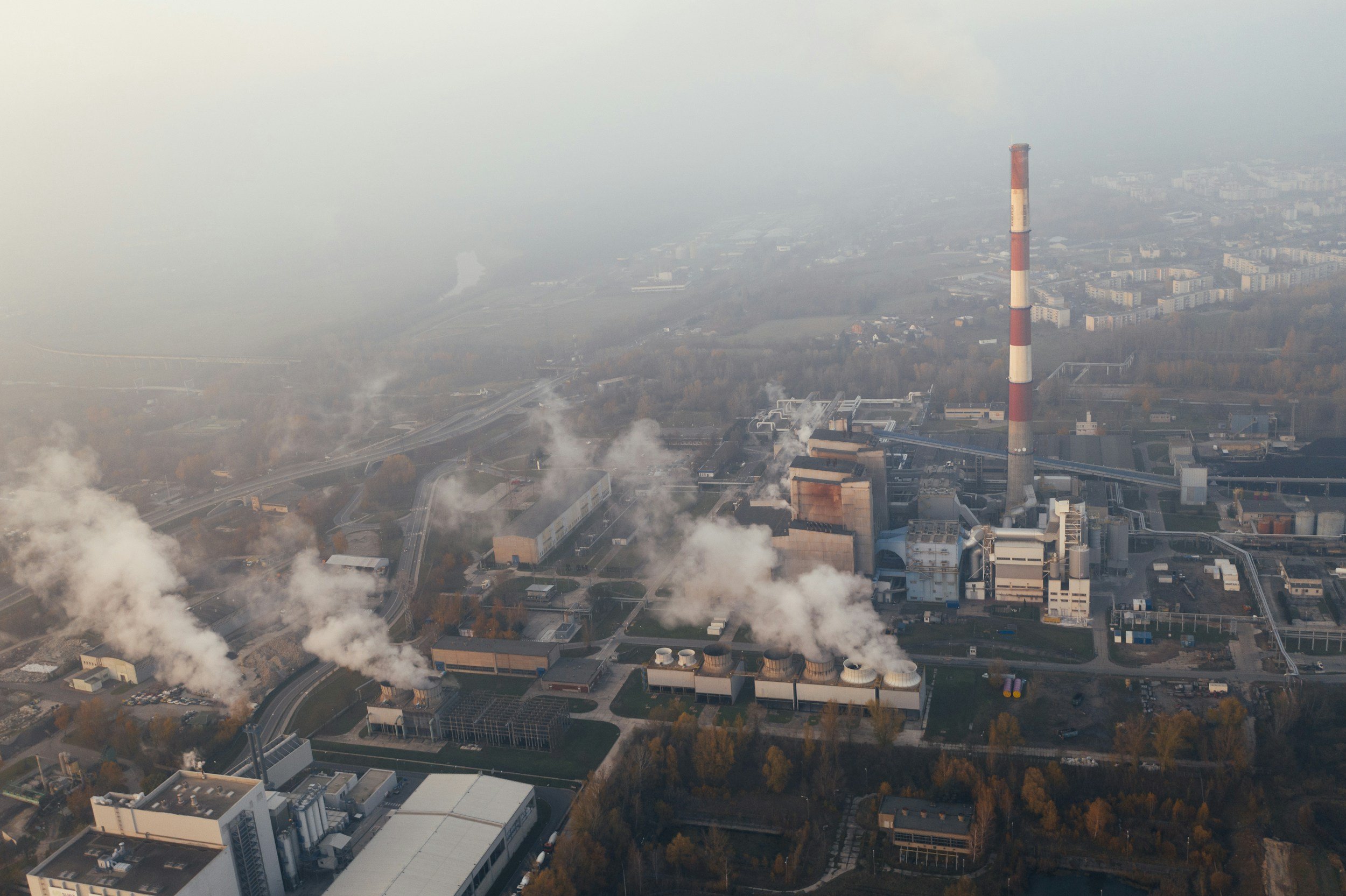
Methodology Report on Carbon Dioxide Removal Technologies and Carbon Capture
Utilization and Storage
The IPCC is planning a Methodology report on Carbon Dioxide Removals (CDR) and Carbon Capture Utilisation and Storage (CCUS).
However, the call for nominations to engage in a scoping meeting for the report is highly problematic in both its framing, which risks further normalizing reliance on CDR and misses crucial context on the irreversible risks of overshoot, and the narrowness of expertise sought.
The IPCC's work is of critical importance for science-based policymaking, yet the current framing of this work program will not lead to clear answers on the sustainable scale of CDR and addressing any non-climate impacts.
Civil society and Indigenous Peoples organizations from around the world have written to the IPCC to challenge that framing, particularly the perceived fungibility between emissions and removals, and to push for a wider scope of expertise including impacts on local communities, Indigenous Peoples, and societies more broadly, sustainability thresholds, environmental issues and ecological integrity.
Dear IPCC Chair and Vice Chairs, TFB Co-Chairs and Working Group I, II & III Co-Chairs
The undersigned organizations communicate our deep concern regarding the framing of the proposed ‘Methodology Report on CDR Removal Technologies and CCUS’, and the types of expertise sought for the first experts meeting in October.
Missing context of overreliance on CDR and temperature overshoot
The undersigned groups are deeply concerned that the Methodology Report would serve to reinforce existing narratives regarding the necessity of relying on massive amounts of CDR to get through the climate crisis. AR6 WGII has clearly shown the grave social and environmental risks of relying on large quantities of CDR. In particular, many pathways that rely on large amounts of CDR are overshoot pathways, which, as WGII has also made clear, will result in irreversible impacts and from which it might be very difficult if not impossible to return. WGIII found that the safest pathways involve drastically reduced CDR, limiting it to non-engineered options, and much sharper serious cuts in emissions through a fast phase-out of fossil fuels, and an immediate halt to the loss of any more primary ecosystems. We are concerned that this wider context is missing from the scope, which risks promoting the need for controversial CDR approaches. As currently framed we are concerned about reinforcing the assumption that we will need to implement large amounts of CDR, leaving precautionary approaches behind while greenlighting various untested technologies - with no assurances of complete capture or permanence of storage.
Expertise
The narrowness of the expertise sought - with the sole qualification listed as experience estimating “sources and sinks” - fails to acknowledge the broader and multi-faceted risks and trade-offs of large-scale CDR for societies, ecosystems and local communities. It cannot be limited to technical expertise.
Any Report claiming to assess technological CDR must include expertise on the impacts on local communities, Indigenous Peoples and societies more broadly that result from the establishment of new and large-scale extractive industries for CDR. Similarly, any Report claiming to cover forests, wetlands and oceans must include conservation biologists, landscape ecologists, and restoration specialists better able to distinguish between the technical potentials related to different CDR approaches and approaches that safeguard food security, biodiversity, the rights of Indigenous people and other human rights. For the Report, it will be vital to surface the functional role of biodiversity in underpinning ecological integrity and the stability of, and risks to, long term carbon storage. Ecosystems with high ecological integrity are at lower risk of releasing carbon to the atmosphere than damaged and degraded ecosystems.
Fallacy of perceived ‘fungibility’ of emissions and removals
More broadly, we expect the IPCC to use this opportunity of a Methodological Report to pursue accounting and reporting solutions that make it very clear that there is no fungibility between fossil fuel emissions and carbon removals. Whatever carbon removals we may be able to achieve in sustainable ways, they must not be used to compensate or offset ongoing fossil fuel emissions. There should be no ‘netting out’ of landscape fluxes. Countenancing fungibility has led to extremely unhelpful claims by countries and companies regarding their pathways to net zero and enabled parties to ignore the importance of retaining and improving the stability of existing ecosystem carbon reservoirs (stocks). While it is often claimed that CDR is needed for ‘hard-to-abate’ sectors, to date CDR has primarily been used to create carbon offsets for sale to emitters. The Methodology Report on CDR and CCUS risks reinforcing this trend; already we are seeing CDR accounting method-ologies for carbon removals incorporated into carbon market design.
Sustainability
We note also the Policy Forum recently published in Science (2 Feb 2024), ‘Sustainability limits needed for CO2 removal’, where authors expressed their concerns about the lack of “details or quantitative evaluation of how sustainability risks vary with increasing levels of A/R or BECCS deployment.” Similarly. we are concerned about the inclusion of bioenergy as part of this Methodology exercise, since recent scientific reports focusing on the unaccounted emissions from biomass burning make it increasingly clear that continuing forest biomass burning for energy would lead to an increase in emissions in the 2030-50 period, even if biomass replaces coal.
Recommendations
The undersigned groups urge the IPCC:
To pursue approaches in the Report that are grounded in planetary boundaries and related sustainability considerations;
The Report should consider related trade-offs in terms of energy, land, water, biomass and other scarce resources;
A different composition of the Expert Group intended to guide this process is needed - and particularly in the land sector, and oceans, where a much stronger ecosystems-based approach and sustainability lens is needed to model thoroughly the tradeoffs required in using land and coastal ecosystems for mitigation purposes;
Social-science expertise is also needed to better under-stand the gender-differentiated, socio-ecological impacts of different forms of land-based and ocean-based CDR, whether engineered or not, including impacts on Indigenous rights and culture;
Scientific analysis related to forests and other ecosystems should build on existing IPBES assessments and we invite exploration of more IPBES-IPCC collaboration on these themes. This report should provide an important opportunity to reflect the importance of ensuring climate action in land, forests and other ecosystems is in line with the Goals and targets of the K-M GBF, as called for in COP 28 CMA5 para 3.;
Conclusion
The implementation of any carbon storage or CDR method at large scale could come with severe impacts on non-climate planetary boundaries, ecosystems (land and oceans), indigenous populations and local communities. Focusing the Methodology Report on “sources and sinks” must not ignore these important issues.
We echo the call made by authors of the February 2024 Policy Forum published in Science to “estimate the sustainable CDR budget based on socio ecological thresholds; identify viable mitigation pathways that do not overstep these thresholds; and reframe governance around allocating limited CDR supply to the most legitimate uses.” A systems perspective that distinguishes more thoroughly between potential and realizable CDR volumes is needed, one that is underpinned by sustainability considerations, as well as human rights and biodiversity impacts, and the high risk of temperature overshoot.
Many thanks for the opportunity to share our concerns. We look forward to hearing from the IPCC regarding changes to the approaches used and expertise sought for this Methodological Report.
And Signed By
International and regional networks
Asian Peoples’ Movement on Debt and Development
Climate Action Network Arab World
Climate Action Network Europe
Climate Action Network International
Friends of the Earth International
Global Forest Coalition
WECF International
International, regional and national organisations
350 Bay Area Action
Abgefrackt Bündnis Weidener Becken gegen Fracking
AbibiNsroma Foundation
ActionAid USA
AirClim
Arbeitsgemeinschaft Mensch und Umwelt e.V.
Association For Promotion Sustainable Development
Association pour la Conservation et la Protection des Écosystèmes des Lacs et l'Agriculture Durable
Australian Marine Conservation Society
Basel2030
Berliner Wassertisch
BI GLAS e.V.
Biofuelwatch
Buliisa Initiative for Rural Development Organisation (BIRUDO)
Bundesverband für Umweltberatung (bfub) e.V.
Bürgerinitiative "Saubere Umwelt & Energie Altmark"
Bürgerinitiative gegen CO2-Endlager e.V.
Carbon Market Watch
Center for International Environmental Law
Climate Communications Coalition
Comité Schone Lucht
Community Action for Health & Development (CAHED)
Congo Basin Conservation Society CBCS-NETWORK
Corporate Europe Observatory
Deutsche Umwelthilfe
EA Za Zemiata - Friends of the Earth Bulgaria
Earth Action, Inc
Erfurt University of Applied Sciences, Faculty LGF
ETC Group
FCPEEP
Fern
FIAN Sri Lanka
FIDEP Foundation
Friends of the Earth Japan
Friends of the Earth Scotland
Friends of the Earth Spain
Friends of the Earth U.S.
Global Media Foundation
Green Planet
groundWork/ Friends of the Earth South Africa
Hamburger Energietisch
Heinrich Boell Foundation
Indigenous Women Empowerment Network
Innovation pour le Développement et la Protection de l'Environnement
Institute for Agriculture and Trade Policy
Institute for Policy Studies Climate Policy Program
Institute of meteorology and climatology
ISDE Bangladesh
Kikandwa Environmental Association
KlimaVerantwortungJetzt
Landelijk Netwerk Bossen- en Bomenbescherming
Leefmilieu
Miljøforeningen Havnsø-Føllenslev
Mobilisation for the Environment
Movilizatorio
NOAH Friends of the Earth Denmark
Observatório do Clima
Oil Change International
Peoples Climate Action Coalition T/A Peoples Climate Assembly
Razom We Stand
Sahabat Alam Malaysia (FoE Malaysia)
Saubere Umwelt & Energie Altmark
Seas At Risk
Stichting Wild Europe
United Kingdom Without Incineration Network (UKWIN)
Urgewald
WhatNext?
